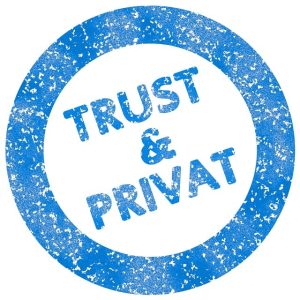In today's global business environment, Confidentiality Agreement (NDA) translation services in the United Kingdom (UK) are crucial for multinational corporations, startups, and individuals. Professional translators ensure these agreements protect intellectual property, trade secrets, and proprietary information while complying with UK laws and regulations. Accurate translations bridge legal nuances, cultural differences, and industry-specific jargon, fostering trust and enabling effective communication among international partners.
“Navigating the complex world of Confidentiality Agreements (CAs) in the UK requires expert knowledge, especially when translating these critical documents. This article delves into the intricacies of CA translation services, a vital aspect of international business. Understanding the definition and legal implications of CAs is essential, but it’s the challenges of language nuances, cultural differences, and ensuring accuracy that truly test a translator’s expertise. We explore why specialized knowledge of UK law, industry-specific experience, and proficiency in multiple languages are paramount for effective CA translation.”
- Understanding Confidentiality Agreements in the UK
- – Definition and purpose of confidentiality agreements
- – Legal implications and key clauses
- Challenges in Translating Confidentiality Agreements
Understanding Confidentiality Agreements in the UK

In the dynamic landscape of international business, understanding and adhering to confidentiality agreements is paramount, especially in the United Kingdom (UK). These legal documents are designed to protect sensitive information shared between parties, fostering trust and ensuring compliance. UK confidentiality agreement translation services play a pivotal role for multinational corporations, startups engaging in cross-border ventures, or even individuals collaborating with foreign partners.
Effective translation goes beyond mere word-for-word substitution. It requires a deep grasp of legal nuances specific to the UK and global business practices. Professional translators specializing in this domain ensure that the confidentiality agreement accurately conveys its intent while adhering to local laws and regulations. This is particularly crucial when dealing with intellectual property, trade secrets, or other valuable proprietary information.
– Definition and purpose of confidentiality agreements

Confidentiality agreements, also known as non-disclosure agreements (NDAs), are legal contracts that establish a mutual understanding of secrecy between two or more parties. They are designed to protect sensitive information shared during business dealings, partnerships, or collaborations. In today’s digital era, where knowledge and intellectual property are valuable assets, confidentiality agreements play a pivotal role in fostering trust and safeguarding proprietary data.
In the UK, these agreements are essential tools for businesses and individuals involved in various industries. They ensure that confidential details, such as trade secrets, financial information, or innovative ideas, remain secure. Translation services for Confidentiality Agreements in the UK are in high demand, especially with global business partnerships becoming more common. Accurate translation is critical to maintaining the integrity of the agreement across different languages, ensuring that all parties involved fully comprehend their rights and obligations.
– Legal implications and key clauses

Confidentiality agreements, also known as non-disclosure agreements (NDAs), are critical documents in business transactions, especially when sensitive information is involved. These legal contracts have far-reaching implications and must be meticulously drafted to protect both parties. When dealing with international partnerships or clients from different jurisdictions, such as the UK, it becomes essential to seek professional translation services for these agreements to ensure their legal validity and effectiveness.
Key clauses in a confidentiality agreement include definitions of confidential information, obligations of both parties regarding its use and disclosure, and time frames for confidentiality maintenance. Translators must be adept at interpreting and conveying these technical concepts accurately across languages while adhering to the specific legal framework applicable in the UK. Proper translation ensures that businesses can protect their intellectual property, trade secrets, and sensitive data during collaborations, fostering trust and long-term partnerships.
Challenges in Translating Confidentiality Agreements

Translating confidentiality agreements presents a unique set of challenges, especially in the UK where legal terminology and cultural nuances vary widely. The primary hurdle lies in accurately conveying complex legal concepts while maintaining the integrity of the original document’s intent. Each industry has its own jargon and specific clauses tailored to protect sensitive information, making it crucial for translators to possess both legal expertise and industry-specific knowledge.
Moreover, confidentiality agreements often deal with international collaborations or transactions, introducing further complexities. Translators must be adept at navigating different legal frameworks and ensuring compliance with data protection regulations in various jurisdictions. This demands a deep understanding of cultural differences and legal practices across the UK and beyond, ensuring that the translated document serves its purpose without compromising sensitivity or effectiveness.
When dealing with international business partnerships, accessing expert UK confidentiality agreement document translators is vital. These professionals ensure that sensitive information remains secure and legally protected, bridging communication gaps between diverse legal systems. With meticulous attention to detail and a deep understanding of both the language and jurisdiction, they play a crucial role in fostering trust and ensuring compliance across borders, making them an indispensable asset for any global enterprise.
